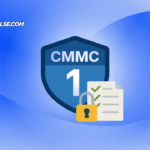M.Sc in Analytical Chemistry is a degree program designed to focus on the different aspects of applied chemistry including agriculture, forensic sciences, research, and other industrial scientific areas. Mostly the professionals within this domain are confined to laboratories for conducting experiments and interpreting the results using different analytical tools. Students who opt for M.Sc analytical chemistry explore different career options in diverse industries like pharmaceuticals, biotechnology, chemical industry, agricultural institutions, and many other top-notch laboratories. That is not all, here is a list of some job profiles where graduates in analytical chemistry are always in demand:
- Senior Process Analytical Scientist: The role of a senior process analyst scientist is to assist the team in carrying out experiments under the proper supervision and manage the analytical aspect of all the experiments carried out in their specified laboratories. They plan and strategize the processes and participate in various clinical research projects.
- Analytical Chemist: The professionals in this subject area analyze and interpret the results of research carried out through a long chain of experiments. They incorporate different types of equipment, software, and practices to accurately document all the data as per the latest guidelines. They also write summaries of different scientific projects of significance, reviews, research papers, and other scientific reports. Analytical chemists are also in charge of producing documentation for product licenses and other advanced research methodologies. They liaise with other expert scientific staff to develop products while ensuring the safety standards are met accordingly.
- Managers of Analytical Chemistry Lab: The professionals in charge of maintaining the laboratories for analytical experimentation are known as managers. They are well equipped with the knowledge of all the equipment, practices, tools, and techniques of analytical processes for developing advanced analytical methodologies.
- Analytical Chemistry Research Associate: These professionals are equipped with a logically independent mindset to work under challenging situations and assist the teams to come up with timely solutions and remedies. Their understanding of analytical techniques is used to validate the new methods of analytical chemistry. Analytical Chemistry Research Associates have to monitor the projects and collect all the information in the form of simplified research notes.
- Analytical Chemistry Lecturer: The professionals interested in working as a teacher or lecturers are mostly keen on pursuing their research while delivering the classes. They are equipped with advanced knowledge of diverse aspects of analytical chemistry and this helps them in assisting the students working on different projects of analytical chemistry to advance their scope. They have to design the curriculum, textbooks, research guidelines, test papers and provide all the important notes that students might require during their course period.
- Research and Development Scientist: Professionals in this specific subject area are hired by different government organizations to help them understand the dynamics of different materials so that they can incorporate them into their next big developmental projects. They usually work under contracts for different projects and carry out their duties in a very confidential manner.
Graduates in analytical chemistry are also hired by biotechnological institutions for assisting them in carrying out various experiments under the strict supervision of these professionals. So, if you are aiming for a master’s program in analytical chemistry, then you must research the eligibility criteria and sign up for the course now!












